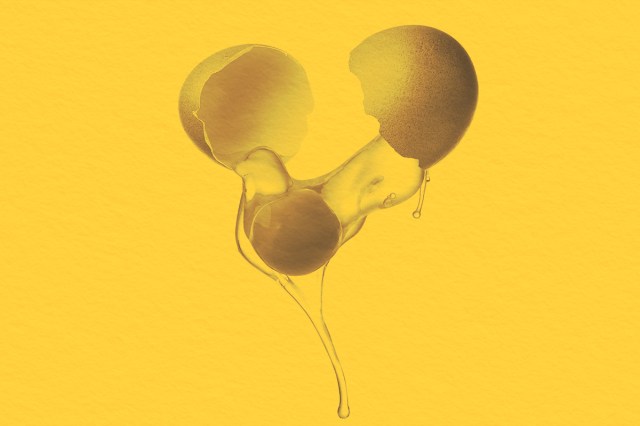
Embarrassment is a normal part of the human experience. Even a small-scale humiliating moment can move me from a slight blush to “egg on my face” territory in seconds. While I’ve used the “egg on my face” phrasing regularly, I was curious to track down the origin of this colloquialism.
Before getting egg on your face became an idiom, throwing eggs at people locked in the stocks was a common practice in the Middle Ages. Rotten eggs were hurled at religious and political speakers throughout the 1700s and 1800s, the projectiles being an effective method to express disapproval. The practice is represented in fiction as well: In Middlemarch by George Eliot, Mr. Brooke gets aggressively egged during a political speech.
Although egg-throwing was a common method for dissent and humiliation for centuries, “getting egg on your face” didn’t become an idiom until the mid-20th century. Coverage of Alfred Hitchcock making the movie Notorious in 1946 recounted an instance in which the director stopped filming a scene to tell Ingrid Bergman “that she ha[d] egg on her face.” He meant that she had a moment of looking embarrassed during a lull in the dialogue. It indicated to Hitchcock that the action had slowed and the tempo of the scene needed to be picked up. Oddly, Alfred Hitchcock reportedly had a strong aversion to egg yolks.
Eggs don’t instill fear in everyone, but having egg on your face may inspire a bit of trepidation. No one wants to be publicly embarrassed. Though we don’t throw eggs at a speaker when we disagree with their opinions anymore, if Hamlet forgets what comes after “to be or not to be,” that might cause a moment of egg-faced unease. But if you do have egg on your face, literally or figuratively, you can remember that embarrassment is temporary and you’ll get through it.

















